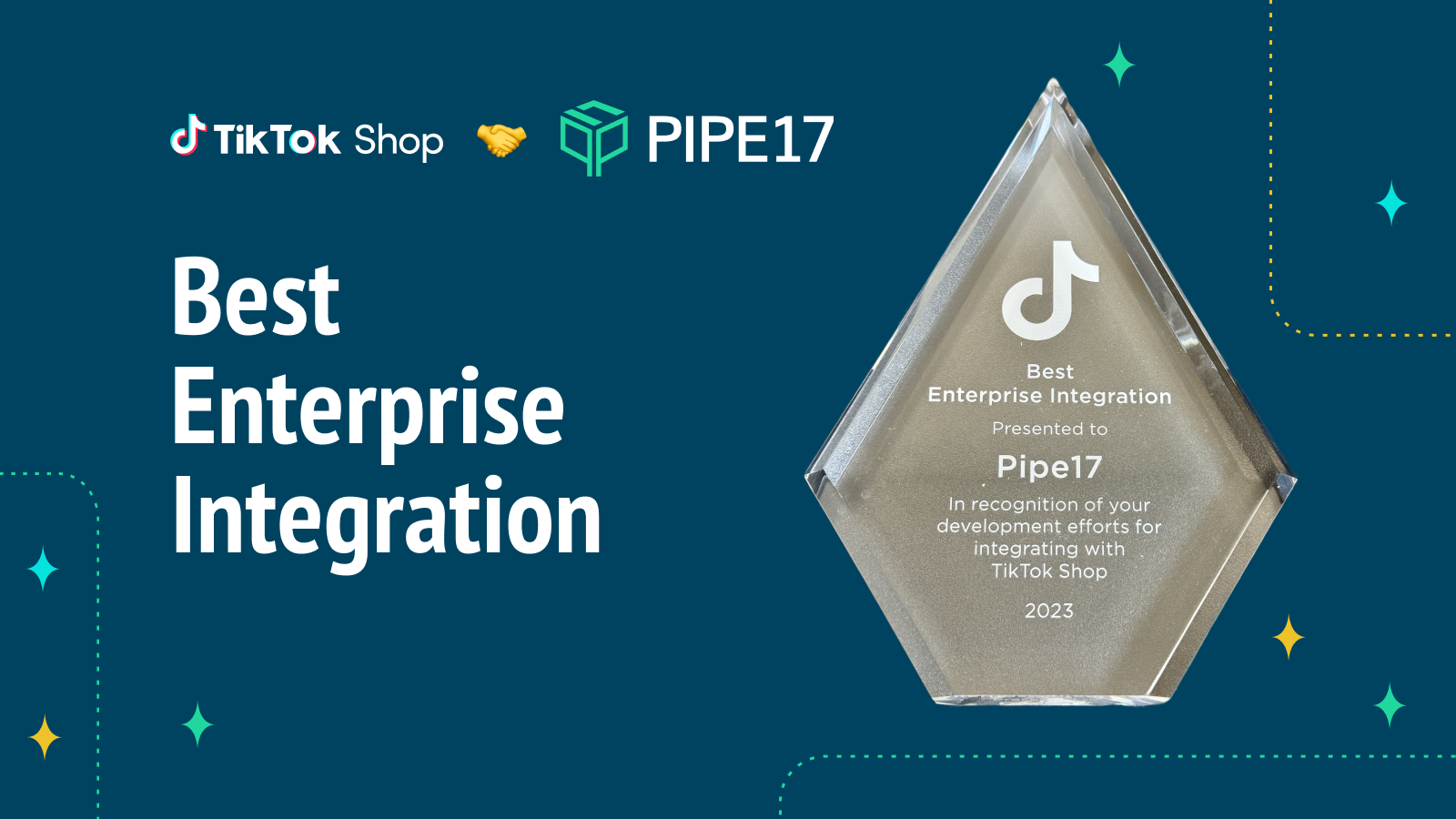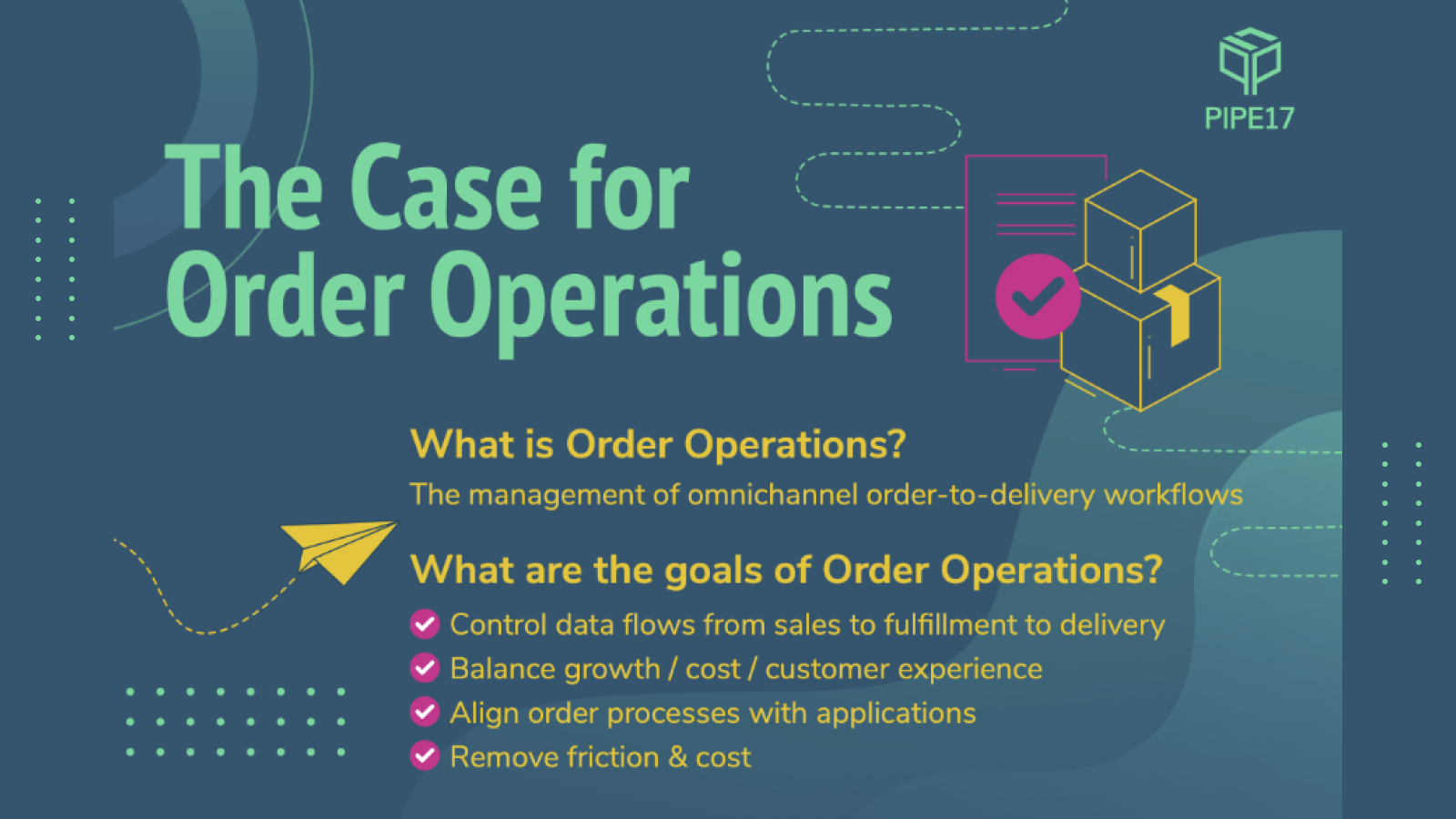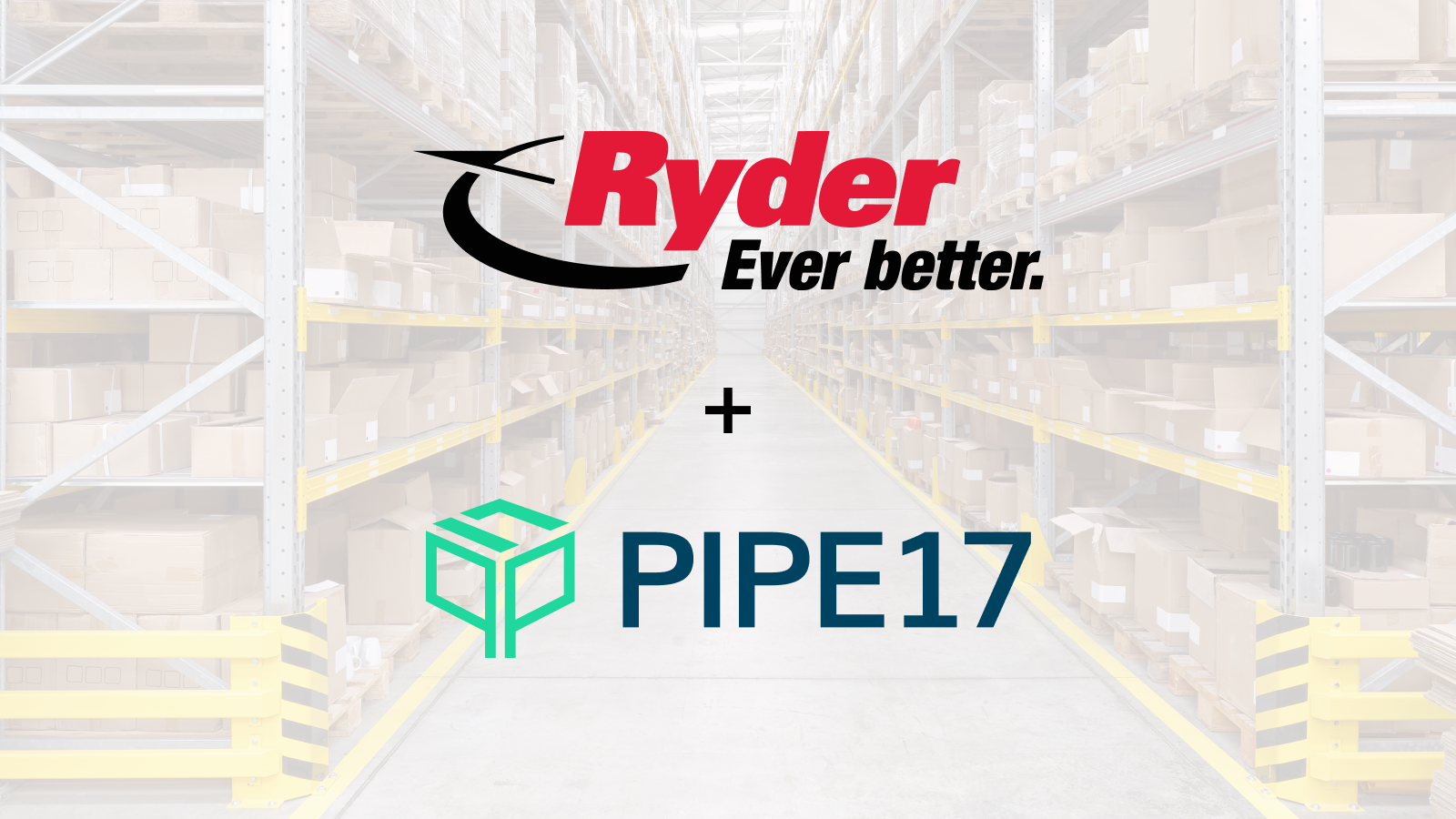Note: All the suggestions in this article are at the discretion of the author and her research, and do not reflect Pipe17 as a company.
Every eCommerce business owner is fuelled by the ability to build their business on their own terms. Honing your eCommerce strategy from day one presents an opportunity to scale and grow however you want.
If you’ve achieved the dream of owning an eCommerce business that turns over million-dollar annual sales, it’s likely you’ll need an enterprise-level eCommerce platform to support your ongoing growth. Using a small platform with limited features can hinder, rather than cultivate, your store’s progression.
SaaS-based eCommerce platforms provide online business owners with the freedom and flexibility to grow their business without the limitations of a small-scale eCommerce store provider.
Two of the biggest, most popular enterprise eCommerce platforms are Shopify Plus and BigCommerce. Both have their strengths and weaknesses, so, how do you know which one is right for you?
To help you decide, let’s explore the features and limitations of each platform.
Shopify Plus vs. BigCommerce Enterprise: What are they?
Shopify originated as a set of eCommerce tools to support the launch and ongoing success of small eCommerce sites. In fact, it first began as a way for Shopify’s co-founders, Tobias Lütke, Daniel Weinand, and Scott Lake, to launch their snowboarding eCommerce business, Snowdevil.
From there, Shopify soon became more valuable than the online store it was set up to manage. It’s been through numerous iterations since its creation in 2004. The Shopify arsenal has enjoyed the addition of many features and related SaaS tools, including Shopify Plus.
Shopify Plus launched in 2014 as a scalable, powerful enterprise solution to support the growth of large-scale eCommerce businesses. Traditional eCommerce software is often unable to handle the requirements of enterprise websites. Shopify Plus, however, aims to offer a robust solution capable of handling the needs of enterprise-level eCommerce stores.
Meanwhile, BigCommerce first started in 2009 as an eCommerce platform for small businesses. It has since grown over the years and now serves many enterprise-level businesses, including Black Diamond and Ben & Jerry’s.
BigCommerce Enterprise launched in 2015 to better cater to the needs of high-volume retailers achieving millions of dollars in sales each year. The evolution of BigCommerce has also seen the introduction of many new features and commerce tools as part of their mission to make it easier for brands to sell online.
Both Shopify Plus and BigCommerce feature advantages and drawbacks. The first step to determine which one is right for you is to understand the capabilities of each SaaS solution.
Pricing
Before we dive into the platforms’ features, let’s first look at their pricing.
Shopify Plus pricing
Shopify Plus is transparent about its pricing, which starts at $2,000 per month.
This is only the base price; the actual cost of your Shopify Plus subscription will depend on the usage and trading volumes of your eCommerce business. As your store requirements and volume rise, the price of Shopify Plus will also increase by a variable rate that flexes with the scale of your business.
Other costs associated with Shopify Plus include:
- 0.15% transaction fee per transaction if you use a third-party processor
- Credit card rates with Shopify Pay, which vary by country
- Cost of working with a Shopify Plus partner if you require custom development
- Optional costs, which include purchasing themes, third-party apps, and tax automation from Avalara Avatax ($250 USD per month)
It’s worth noting that if you choose to use Shopify Payments, the transaction fee is waived. Shopify also asserts that enabling Shop Pay provides a potential 18% higher conversion rates.
BigCommerce Enterprise pricing
BigCommerce doesn’t share the price of its Enterprise platform online. Instead, brands interested in BigCommerce Enterprise need to contact the company’s sales team for a custom quote.
The price of BigCommerce Enterprise is tailored to your business based on two key elements: your average order value and the average number of orders you process each month.
Prices are understood to start at around $1,000 per month and, on BigCommerce’s pricing page, they’ve previously promised their Enterprise solution will be cheaper than both Magento and Shopify Plus. Comments from eCommerce owners deciding between both BigCommerce Enterprise and Shopify Plus also seem to support the notion that the former is typically the cheaper option.
One appealing benefit of BigCommerce Enterprise is no additional transaction fees — something Shopify Plus only offers if you use Shopify Payments.
Verdict
While we can’t supply exact pricing figures, the evidence suggests BigCommerce Enterprise is typically the more affordable enterprise platform of the two.
However, price alone shouldn’t decide which one you choose. It’s also important to compare the capabilities of each platform to make sure it provides everything you need.
Features
Integrations and apps
In today’s age, an eCommerce store is only as strong as the tech stack that supports it. Integrating your chosen enterprise eCommerce platform with other apps and tools allows you to expand the power of your commerce site so it suits your exact needs.
High-volume stores often require a unique stack of features and functionality to scale their business and satisfy customer demands.
Shopify Plus integrations and apps
Shopify operates as a “plug-and-pay” platform, meaning you can easily connect any tools and systems you already use such as your ERP or CRM. These can be connected through API, SDK, or with the help of a Shopify Plus partner.
Integrations extend beyond the storefront: You can make changes across both the front end and back end of your website. This gives you freedom to customize your website and build a unique eCommerce solution that operates seamlessly.
Within their app marketplace, Shopify Plus connects eCommerce owners with thousands of applications. Shopify then takes this one step further with their Certified App Program. Here, you’ll find a number of free and paid apps Shopify has carefully chosen based on their quality and ability to solve merchant needs.
You can connect apps across your business with their eCommerce automation service, Shopify Flow. This automates repeat processes throughout your store to reduce the risk of human error as well as the time spent on tasks. Most connectivity needs that required ERP, financials, order inventory management system, returns systems do often require a specialist solution such as Pipe17.
BigCommerce integrations and apps
Before we explore BigCommerce’s integration and app capabilities, we want to discuss the out-of-the-box capabilities.
Prior to connecting any existing systems or plugging in any apps, BigCommerce’s standard features and functionality achieve more on their own than other enterprise eCommerce platforms. BigCommerce states its out-of-the-box capability can save merchants an average of $5,800–$30,000+ per year in app subscription costs compared to Shopify. It’s a bold claim, one you may want to pay attention to if you need a complex tech stack to support your site.
Moving on to integrations, BigCommerce lets merchants scale their store with API or SDK connections. Much like Shopify Plus, the integration capabilities of BigCommerce Enterprise lets you build flexible solutions and connect existing systems to enhance your store experience. But of course a developer or systems integrator has to do the work — which can be costly.
BigCommerce’s app marketplace is considerably smaller than that of Shopify Plus. However, you’ll still find some notable app connections in the marketplace, from Amazon Multi-Channel Fulfillment to Spocket Dropshipping, QuickBooks accounting software, and more.
Verdict
BigCommerce Enterprise offers more standard capabilities, which is perfect for merchants looking for an affordable solution that requires less manual construction.
However, if your eCommerce store requires deeper, more complex functionalities and features, your best bet is Shopify Plus.
Offering a larger variety of app connections, Shopify Plus is well-suited for merchants wanting to scale and customize their store in a more out of the box fashion. Word on the street is that, since dropping their app partnership fee, many apps will soon become Shopify-exclusive. So, if you’re in need of an in-depth app ecosystem, Shopify Plus might be the one for you.
Payment options
Both BigCommerce and Shopify Plus offer users an array of third-party payment providers. This allows you to use the payment option that’s best suited to your store and customers.
Shopify Plus payment options
With Shopify Plus, merchants can use Shopify’s purpose-built Shopify Payments solution. This removes the hassle of setting up a third-party payment provider, making it easier to launch your store and start handling transactions from day one.
Stores using Shopify Payments are able to accept transactions from Shop Pay, Apple Pay, Google Pay, PayPal, and local payment methods.
The solution also accepts multiple currencies so your customers can pay for orders using tender that’s different from your currency payouts. Currency exchange rates will apply, and they differ depending on the chosen payment currency versus your store’s currency.
However, Plus subscribers who use a third-party payment gateway will incur a 0.15% transaction fee per transaction.
If opting for a third-party payment provider with Shopify Plus rather than Shopify Payments, you will also lose access to certain features such as multi-currency.
BigCommerce payment options
Merchants using BigCommerce Enterprise gain access to more than 65 pre-integrated online payment providers across 230 countries, available in over 140 currencies.
The pre-integration of these payment options means you can start taking sales almost instantaneously by removing the need to spend time, money, and effort connecting third-party payment gateways.
Just like Shopify Payments, BigCommerce lets merchants accept payments from PayPal, Apple Pay, and local payment methods.
You can also manage multiple currencies with BigCommerce payment solutions. However, not all BigCommerce features support multiple transaction currencies, so be sure to check if your required features are compatible if you plan to operate a multi-currency store.
The BigCommerce payment solutions are also optimized for mobile so your shoppers can seamlessly shop from their mobile device and use their digital wallet.
While Shopify Plus penalizes users who don’t use Shopify Payments with a 0.15% transaction fee, BigCommerce offers 0% transaction fees no matter which payment provider you choose.
Verdict
The payment solutions provided by Shopify Plus and BigCommerce Enterprise are almost identical. Their differences are so slight that deciding comes down to personal preference.
BigCommerce’s 0% transaction fees regardless of the payment gateway used is certainly tempting. However, merchants looking to provide multiple currency transactions might want to opt for Shopify Plus.
More multi-brand and international sellers use Shopify Plus than BigCommerce Enterprise, which hints at a public vote in favor of the multi-currency and international capabilities of Shopify Plus.
SEO capabilities
Search engine optimization (SEO) determines the amount of online exposure your store receives.
Simply put, SEO is the process of improving your website so it’s more visible in search engine result pages (SERPS) when people search for keywords relating to your store products/services. The better your site’s SEO, the more discoverable it will be in search results.
SEO features
Shopify Plus and BigCommerce have taken SEO into consideration as part of their enterprise eCommerce platforms. As such, they both offer a number of helpful SEO features and out-of-the-box capabilities.
Shopify Plus SEO features
Shopify Plus merchants have access to standard SEO features such as the ability to amend metadata, change page titles, and add headings and alt text.
Some circumstances require eCommerce stores to set up page redirects, such as when a product is no longer available. In these cases, Shopify Plus lets users easily set up and manage page redirects. Linking structure is an important component of SEO, so this feature is a major advantage for Shopify Plus.
BigCommerce SEO features
The SEO features available within BigCommerce Enterprise are arguably better than Shopify Plus.
As with Shopify Plus, BigCommerce users can edit page titles, metadata, alt text, and other on-page elements to improve organic rankings.
Merchants using BigCommerce can easily create SEO-friendly URLs by customizing the look of their URLs. To illustrate this, Shopify Plus store URLs contain prefixes based on the page type (e.g., “/pages/” before pages). Meanwhile, BigCommerce URLs can be shortened to remove these often unnecessary prefixes.
Moreover, BigCommerce lets merchants customize their Robots.txt file — another SEO feature that Shopify Plus does not readily offer.
Mobile-friendliness and AMP formatting
Both BigCommerce and Shopify Plus allow merchants to present product pages in AMP (accelerated mobile pages) format. In a world where people frequently shop on their phones, AMP improves this experience, increasing sales opportunities for eCommerce stores.
Although both BigCommerce and Shopify Plus offer AMP, Shopify requires you first to install a paid third-party AMP app. Meanwhile, BigCommerce lets merchants use AMP without any additional charge across all their free BigCommerce themes and a number of paid themes as well.
Verdict
When it comes to technical SEO capabilities, BigCommerce is the clear winner. By offering a more granular ability to amend URLs and Robots.txt file, as well as easily create AMP pages for free, BigCommerce provides a more SEO-friendly option.
With that said, the right SEO knowledge and expertise can optimize almost any site for organic search, and the Shopify Plus SEO features still serve sites well in performing better in search results.
Ease of use
Website usability plays an important role in eCommerce customer behavior; a clunky, frustrating experience can quickly scare off potential buyers. Merchants need to be able to manage, navigate, and develop their online store easily so they can quickly make changes that align with the scale of their site and the demands of their customers.
A user-friendly eCommerce platform can also save merchants time, money, and resources by making it easier to complete necessary eCommerce actions both at the back end and front end of their site.
Shopify Plus ease of use
The Shopify Plus back end benefits from a clean and simple design. This makes navigating your store’s back end intuitive and seamless.
If you want to customize your Shopify Plus storefront, you may find their native page builder less than user friendly. With Shopify’s page builder, you can switch the order of page elements, but you can’t drag and drop them anywhere you want on the page. As such, eCommerce owners wanting to customize their storefront will need to install a drag-and-drop page builder.
The ability to set up workflow automations makes it easy for Shopify Plus merchants to automate tasks so they can focus their time, energy, and resources on other areas of their business.
BigCommerce ease of use
Over the years, BigCommerce has made improvements to the ease of use of its Enterprise solution.
The drag-and-drop builder is considered to be more flexible than Shopify’s page builder. This makes storefront design an easy task for BigCommerce Enterprise merchants.
Overall, BigCommerce is a fairly simple eCommerce platform to use that still provides control over many store elements.
Headless commerce
Headless commerce is a must-have architecture choice for high-volume, future-ready eCommerce stores. Both Shopify Plus and BigCommerce support headless commerce, which features greater customization options than traditional eCommerce architecture.
The headless commerce features on BigCommerce are considerably stronger than on Shopify Plus. BigCommerce has directed much of their focus toward driving their headless commerce approach. They built out numerous aspects of their APIs to enable easy “commerce-as-a-service” for stores looking to adopt the headless method. Conversely, Shopify Plus only offers headless commerce through storefront API.
Verdict
Although Shopify Plus and BigCommerce Enterprise are easy to use, BigCommerce is more flexible when it comes to front-end design. If your products have several features, you should consider BigCommerce. Additionally, the platform provides greater innovation to support merchants who want to develop a headless commerce solution.
That said, the easy-to-use design of Shopify Plus makes it a viable option if you want to manage your eCommerce site easily from the get-go.
Customer support
When running a high-volume eCommerce business, you’re bound to experience a number of problems along the way. The quality of customer support you receive from your enterprise eCommerce solution could be the deciding factor as to which platform to use.
Shopify Plus customer support
Shopify Plus offers users a dedicated Merchant Success management team. Your assigned Merchant Success Manager will be on hand 24/7 to support you. This support is accessible across a variety of channels, including email, phone, and live chat.
You can go to your Merchant Success Manager to request help with almost anything, from brand strategy to migration, business development, and more. For technical support, you can speak to your Shopify Plus solutions engineer.
Shopify Plus is rated four and a half stars on G2, with many reviewers describing the customer support through Shopify Plus as excellent.
BigCommerce customer support
Much like Shopify Plus, BigCommerce Enterprise customers also benefit from a team dedicated to supporting the launch and success of their online stores.
At the launch stage, BigCommerce Enterprise offers a Solutions Architecting Service to help you seamlessly integrate your systems into the Enterprise infrastructure. Once it goes live, you then have access to a dedicated Customer Success Manager, who acts as a trusted advisor to help you reach your full potential with BigCommerce.
Meanwhile, your Technical Account Manager will be on hand to offer technical support as they oversee your store’s technological health, and will help you develop a technical strategy for your online store.
According to G2, BigCommerce holds a four-star rating from 396 reviews, with many praising their customer service.
International sales
International eCommerce expands your customer base to sell your products across numerous countries. If global eCommerce is a key element of your commerce strategy, you should review the international capabilities of your chosen eCommerce platform.
Shopify Plus international sales
Shopify Plus’ international eCommerce capabilities let merchants sell products on a global scale through localized currencies, languages, and stores.
Shopify Plus users can also add up to nine free expansion stores with separate physical locations. However, if you want to develop a complex multi-store setup on Shopify Plus, you’ll need third-party apps and tools for support.
Merchants using Shopify Plus are also able to develop a multi-warehouse system to manage inventory and order fulfillment effectively across numerous locations.
Also, as mentioned earlier, Shopify Plus merchants using Shopify Payments gain access to multi-currency payments, which makes it easier to accept transactions in various currencies.
BigCommerce international sales
Similar to Shopify Plus, BigCommerce also supports the launch of multiple storefronts to take your eCommerce brand global.
With BigCommerce’s globalization features, merchants can also set up localized content for each of their geographic locations using the BigCommerce Stencil framework. They can also customize product catalogs, pricing, and promotions on a regional level to tailor site content to each country they operate in.
As we know, BigCommerce supports multi-currency transactions and offers as standard a high number of payment gateways across 230 countries and 140 currencies.
Verdict
When it comes to international capabilities, Shopify Plus and BigCommerce hold similar rankings. For example, both platforms have rudimentary multi-store functionality. Hopefully, we’ll see BigCommerce and Shopify Plus further develop their multi-store and international features to better support brands on a global scale.
Shipping options
Setting up shipping can be complex: You need to choose a shipping method, set up shipping partners, allocate shipping costs, and more. If your eCommerce platform doesn’t support your desired shipping methods and processes, it could cause more harm than good.
Shopify Plus shipping options
Shopify Plus users can take advantage of shipping profiles to set up accurate shipping rates through product-based shipping rules. This allows merchants to set shipping rates for specific products or based on where they ship products to and from.
For each profile, you can establish shipping zones and rates, providing customized shipping options outside of your standard rates.
Merchants shipping products through a Shopify Plus store can choose from free, flat, real-time, or calculated shipping rates. These can also be amended at the regional level to improve shipping accuracy. Shopify Plus merchants can even offer pickup and local delivery options for nearby customers.
BigCommerce shipping options
Within the BigCommerce Store setup is the Shipping Manager. This area of your website lets you easily configure your shipping information. You can specify where you’re shipping from, establish shipping zones, and set up your shipping methods.
BigCommerce merchants can choose to offer the following types of shipping rates:
- Flat or fixed rates
- Table rates
- Real-time rates
The real-time shipping rates feature supports a number of carriers, including FedEx, UPS, Canada Post, Royal Mail, and more. Connecting a shipping app can further expand these carrier options.
BigCommerce merchants can also, unsurprisingly, offer free shipping, as well as in-store pickup.
Verdict
The shipping features and functions on Shopify Plus are more intuitive than their BigCommerce counterpart. If you’re looking to create highly customized and configurable shipping options for your store, Shopify Plus is the better choice.
Conclusion: Shopify Plus vs. BigCommerce Enterprise
In summary, there’s no straightforward answer in the Shopify Plus versus BigCommerce Enterprise debate.
Both eCommerce platforms boast powerful functions to support the hypergrowth of high-demand stores. However, both also have their limitations. Knowing which solution is right for you depends on how comfortable you are with technical adjustments and how complex your site needs to be.
Before making your decision, we advise taking a close look at each of their features yourself and measuring how much of a priority they are for your store.
If your store needs greater customization, BigCommerce may be the best choice. But, if internationalization is the driving force of your brand, Shopify Plus might suit you best. Your selection ultimately depends on the unique needs of your brand.






